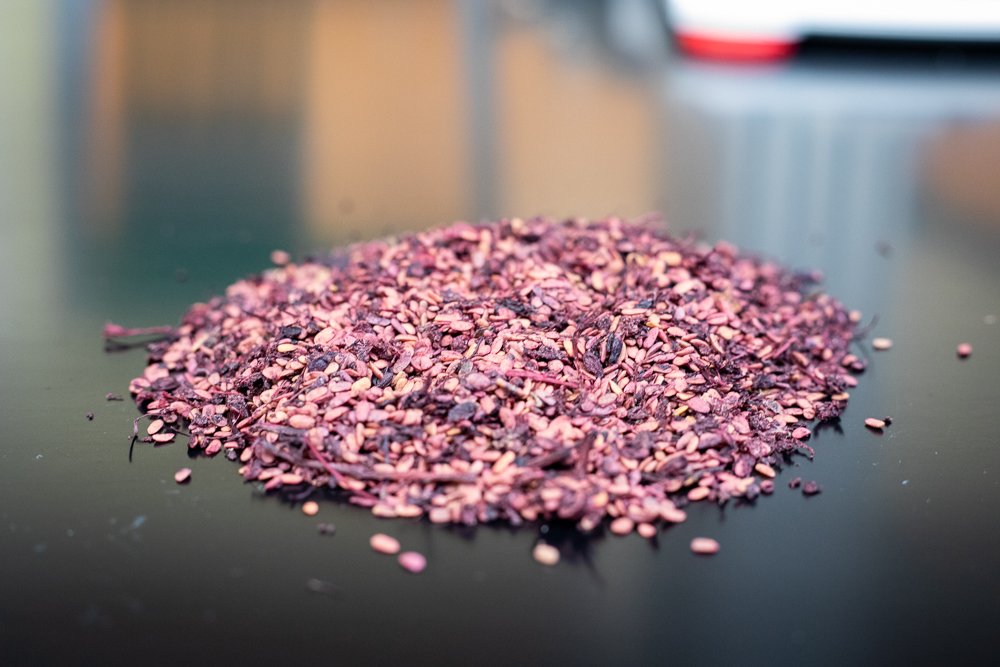Elderberry research supports development of new food product possibilities
Marvin Moncada, PhD, came to NC State University to build an Extension research program that creates value-added products, starting with the processing of raw materials and food byproducts and continuing through the development of novel food products or food ingredients. Over the next four years, the American elderberry (Sambucus canadensis) will be a focus crop in fulfilling that mission as part of a $5.3 million research project, funded by the United States Department of Agriculture Specialty Crop Research Initiative and led by the University of Missouri. The American elderberry is a native plant to North America, not to be confused with the European elderberry, Sambucus nigra.
While other collaborators focus on plant breeding and production aspects, Moncada will work with Penelope Perkins-Veazie, PhD and Professor of Postharvest Physiology at the Plants for Human Health Institute (PHHI), to characterize the little-known phytochemical properties of American elderberry and developing products for use in animal and brain health research.
Collaborators Roberta Hoskin, PhD and Mary Ann Lila, PhD, also scientists at the PHHI, are adapting a novel technology to extract the health-protective phytochemicals from elderberry pomace (the leftover skins and seeds after juicing), and bind them to healthy edible proteins, in order to sustainably repurpose elderberry waste streams. The elderberry pomace extracts are combined with protein and spray-dried (using a gentle heat and forced air) to create a versatile protein-elderberry powdered ingredient for value-added food products.



Moncada says, “Developing pathways for repurposing fruit by-products is more than an economical and environmental reengineering strategy, but also a matter of avoiding the loss of health-promoting phytochemical compounds and natural colorants retained in the peels and other discarded fruit wastes.” Incorporating these now-upcycled elderberry ingredients into ready-to-eat products such as antioxidant protein bars or smoothie-type drinks combines nutrition, flavor and convenience.
Nearly 15 years ago, Perkins-Veazie helped gather fruit chemistry data on American elderberry. She says, “I’ve followed the work of Andy Thomas, project leader at the University of Missouri, and one of the most exciting parts of this multidisciplinary effort, is exploring the brain health effects.” Moncada’s elderberry ingredients will be processed into food products at the NC Food Innovation Lab, co-located with PHHI at the NC Research Campus, for use in in vivo trials. The elderberry-containing food products will be provided to researchers at the University of Missouri School of Medicine who will be looking at dementia, memory loss and other aspects of aging to determine how elderberry supplements affect brain health as people age.
American elderberry has already become the number one berry crop in Missouri, surpassing blackberry and strawberry, so production is on the rise, as is the amount of pomace generated. Food technology and innovation in processing are key to utilizing the pomace to make health-rich ingredients that will bring more elderberry food products to wider markets.
This work is supported by, Moving American Elderberry into Mainstream Production and Processing, grant no. 20215118135860 from the USDA National Institute of Food and Agriculture. Penelope Perkins-Veazie is the lead investigator for NC State University.
- Categories: